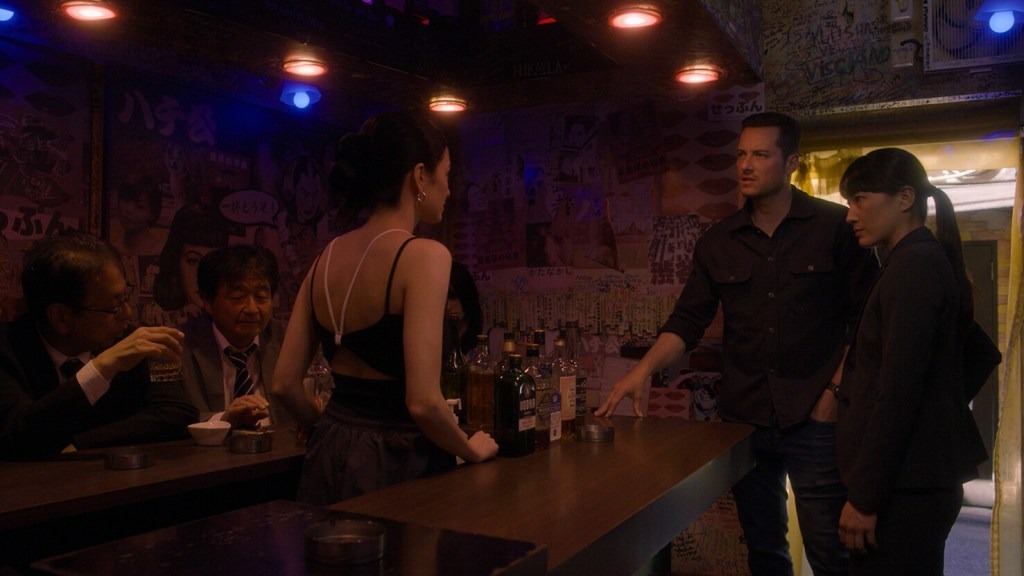
Introduction: The Tension Behind ‘Gaijin’
FBI: International Season 4 Episode 22, titled “Gaijin”, wraps up the season with an emotionally intense and action-packed hour that feels more like a feature film than a procedural episode. But beneath all the thrilling chases and international intrigue, the finale dives deep into themes of identity, loyalty, and moral complexity. If you blinked, you may have missed some powerful subtext.
What Does “Gaijin” Mean and Why It Matters
“Gaijin” is a Japanese word that translates loosely to “foreigner” or “outsider.” But it’s more than that—it carries a cultural weight. In this episode, the word reflects the disconnection and distrust between those inside and outside the local culture. The title isn’t just a nod to setting—it’s a metaphor for the team’s role in global law enforcement and even their personal lives.
Plot Recap: What Went Down in Episode 22
The Fly Team heads to Osaka, Japan, to investigate a string of murders connected to a former American naval officer who’s gone rogue. What begins as a straightforward manhunt quickly spirals into a dark underworld of organized crime, unresolved trauma, and political minefields.
The tension builds as the team must navigate a legal system completely foreign to their training, and the stakes only rise when one of their own is implicated in a diplomatic nightmare.
The Japanese Underworld Connection
The episode smartly weaves the narrative around Yakuza activity, and it doesn’t just use them as cartoonish villains. The writers put care into portraying the organization’s history, symbolism, and code of honor, which adds realism and depth.
We see that the antagonist, while violent, operates from a place of discipline and belief. It’s the kind of nuanced storytelling that shows just how far the series has evolved from its early “case-of-the-week” days.
Key Characters Who Shined in This Episode
Scott Forrester takes center stage, but this time with more introspection than ever before. His stoic nature is tested as he finds himself emotionally entangled in the case.
Raines, however, is the real standout. His compassion for a local interpreter caught in the crossfire gives his arc surprising emotional weight. And Smitty’s sharp diplomacy skills save the day more than once.
Scott Forrester’s Moral Dilemma
Forrester’s story in “Gaijin” is about more than just the mission. He finds himself confronting his own identity as a perpetual outsider, not just in Japan but in his relationships, his leadership, and even his homeland. There’s a quiet breakdown moment where Forrester is alone, looking over the Tokyo skyline, and it speaks volumes.

Is Raines Leaving the Fly Team?
There’s a subtle but significant thread involving Special Agent Andre Raines and his growing disillusionment with the team’s globe-trotting lifestyle. A heartfelt conversation with the local interpreter suggests he’s rethinking his future. Fans are speculating this might be laying the groundwork for a possible exit in Season 5.
Smitty’s Most Unexpected Move Yet
When negotiations with Japanese authorities begin to collapse, Smitty pulls a wildcard, invoking a decades-old mutual legal assistance treaty that saves the mission. It’s a bold, clever move that showcases her diplomatic chops. No weapons needed—just brains, legalese, and confidence.
Emotional Layers: Not Just Another Action Finale
What makes “Gaijin” different from other finales is how much it leans into emotion. Sure, there are bullets and bruises, but there are also tears, silence, and moments of hesitation. The characters feel human—not just agents of justice.
The Real-World Inspiration Behind ‘Gaijin’
The storyline is rumored to be inspired by a real incident involving a U.S. serviceman in Japan, which caused diplomatic tensions. While fictionalized, the episode mirrors how fragile international law enforcement collaboration can be when cultural misunderstandings come into play.
The Role of Cultural Misunderstanding
Throughout the episode, the team faces subtle but powerful reminders that they don’t fully understand the landscape they’re working in. From bowing etiquette to interrogation norms, the cultural gaps highlight a larger theme—power means nothing if you don’t understand the people you’re trying to protect.
Flashbacks, Family, and Closure
One surprisingly effective part of this episode involves flashbacks to the rogue officer’s time in the Navy, providing rare context that almost makes you sympathize with him. The writers balance that fine line between villain and victim, leaving the audience to draw their own conclusions.
How ‘Gaijin’ Sets Up Season 5
Without giving away spoilers, the final moments of “Gaijin” plant serious seeds for Season 5’s major arcs. One involves a leak inside the Bureau. Another hints that Forrester may be called back to Washington. And a third revolves around a developing romance that fans have long speculated about.
Hidden Details You Probably Missed
-
The tattoo on the suspect’s neck is a direct nod to a real Yakuza symbol.
-
The call sign used in the helicopter scene is an Easter egg referencing Season 1’s pilot episode.
-
The sushi restaurant scene? Shot in an actual Tokyo location known for its links to law enforcement meetups.
Fan Reactions: Social Media Explodes
Minutes after the episode aired, fans flooded Twitter/X and Reddit with reactions:
-
“That ending?? Did NOT see that coming.”
-
“Smitty needs her own spinoff after this!”
-
“Raines better not be leaving. I’m not ready.”
Clearly, “Gaijin” left an impression.
The Evolution of FBI: International
Four seasons in, the show has matured from procedural formula to something richer and more layered. “Gaijin” is a symbol of that evolution—complex, emotional, culturally aware, and narratively bold.
Conclusion: A Season Finale That Truly Delivered
“Gaijin” isn’t just an episode—it’s a statement. It shows that FBI: International isn’t afraid to tackle complex international issues, explore cultural nuance, and take risks with character development. As the dust settles, fans are already theorizing what Season 5 will bring—and if “Gaijin” is any indication, we’re in for a ride.
5 Unique FAQs About FBI: International ‘Gaijin’
1. Why was the episode titled “Gaijin”?
The title refers to the Japanese term for “foreigner,” symbolizing the Fly Team’s outsider status and deeper themes of cultural misunderstanding.
2. Will Raines actually leave the team in Season 5?
While nothing is confirmed, “Gaijin” heavily hints at Raines contemplating a major life change, which could signal a shift in his role.
3. Was the plot based on a true story?
Loosely. It mirrors real-world diplomatic challenges involving U.S. personnel abroad, but the characters and events are fictional.
4. What was the meaning behind the final rooftop scene?
The final rooftop moment is symbolic of isolation and reflection. Forrester is both above the city and disconnected from it—representing his internal conflict.
5. Where was ‘Gaijin’ filmed?
Parts of the episode were filmed on location in Tokyo, with additional scenes shot in European studios replicating Japan’s urban environment.